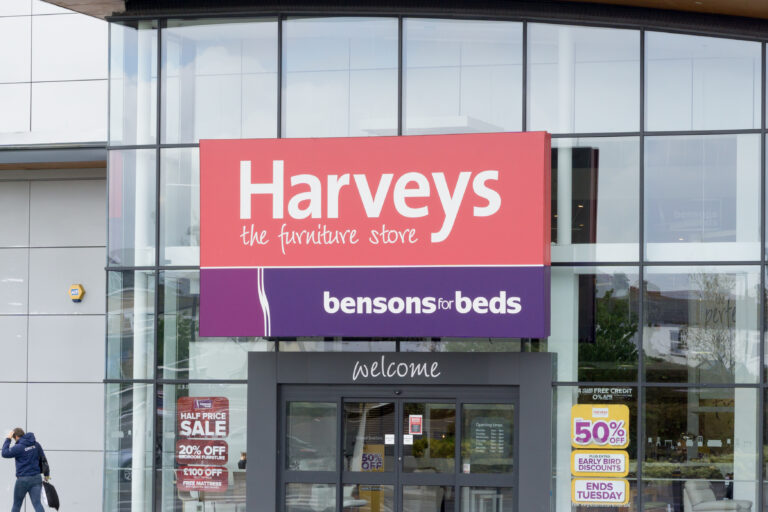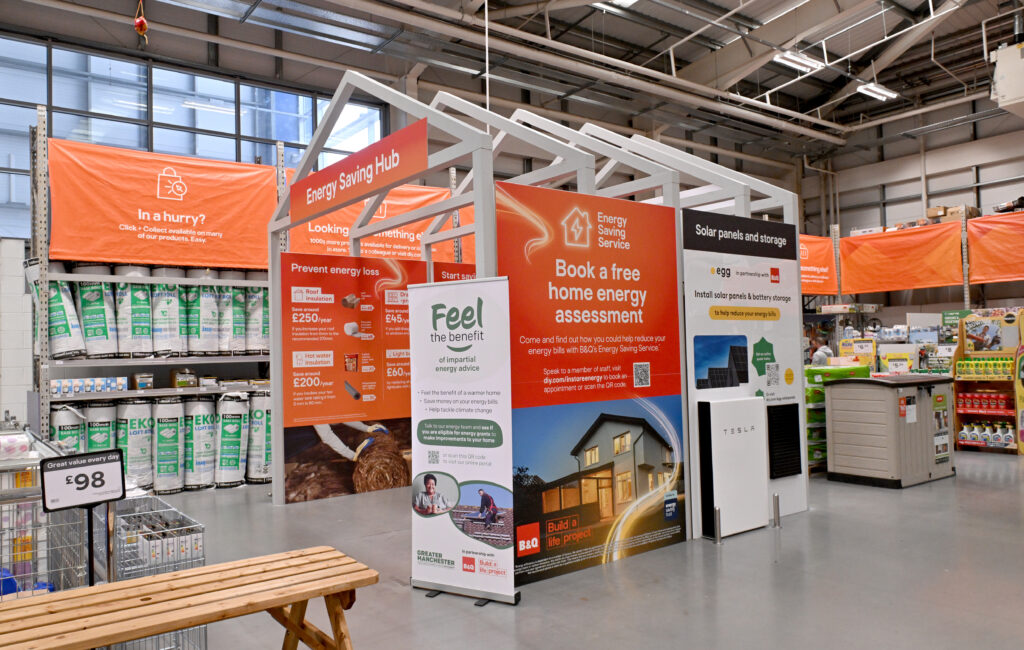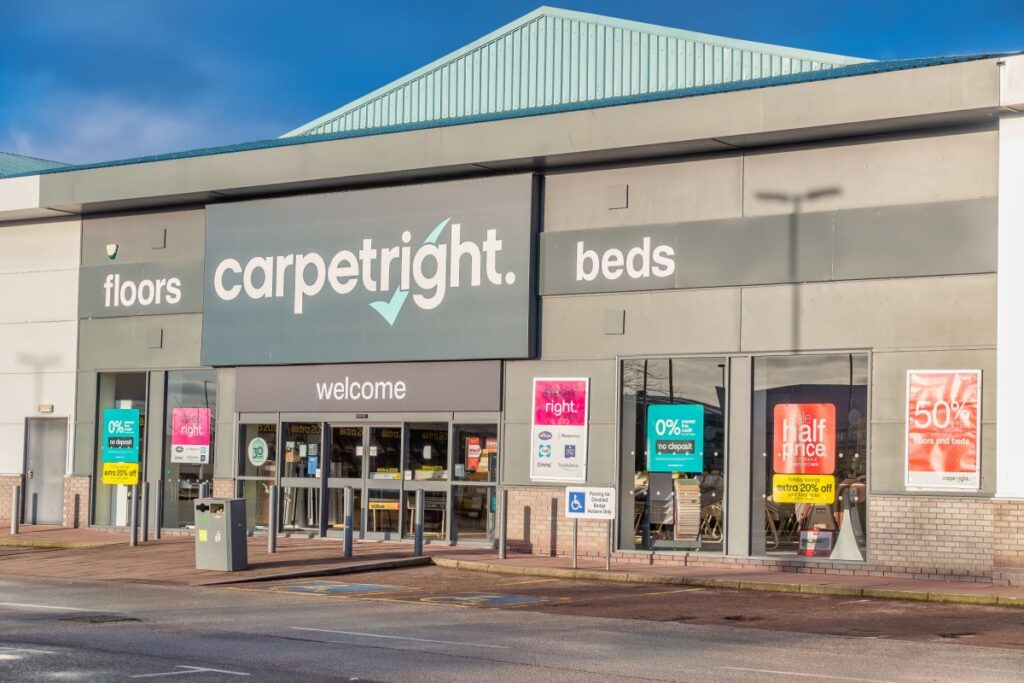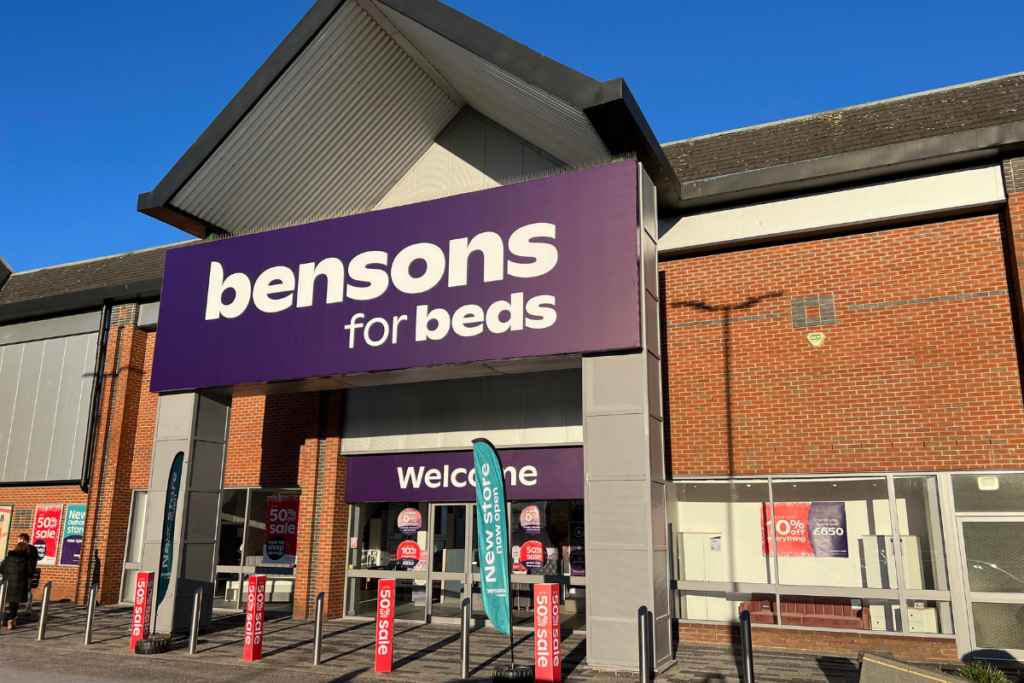A BRIEF TIMELINE
1966: Harveys opened its first store on London’s Mare Street, selling living room and dining room furniture, textiles and home furnishings. It began as a private company.
2003: Harveys made the decision to move to a furniture-only business, removing all textiles from its product range.
2004: Harveys launched its bedroom furniture range.
2005: In October, the company was acquired by South African retail conglomerate Steinhoff International.
2010: In May, Harveys removed its bedroom furniture range from its catalogue, and was taken over by Blue Group, a firm that owns Bensons for Beds. Blue Group is also part of the Steinhoff family.
2013: In November, a fire engulfed the Harveys branch in Carlisle following an arson attack.
2016: In March, the fire-ridden Harveys branch in Carlisle reopened.
October 2017: Steinhoff announced a raft of changes to the Harveys and Bensons for Beds leadership team after the former chief executive of Target Australia, Stuart Machin, stepped into the chief executive role.

December 2017: Steinhoff embroiled in a financial scandal after revealing it must restate its 2016 financial results due to inaccuracy. Chief executive Marcus Joost also quit unexpectedly over “accounting irregularities”. Steinhoff appointed PwC to investigate what is estimated to be a £5.3 billion hole in accounts linked to Steinhoff’s assets outside South Africa. Steinhoff also had its credit insurance cancelled or reduced and credit facilities suspended while its shares plunged.
January 2018: Steinhoff dealt another blow to investors and creditors after warning that its accounts from 2015 may also need to be restated. The caution put the fate of Harveys at risk at the time. Speculations rose that Steinhoff may need to sell Harveys off in an effort to consolidate its staggering losses. Meanwhile, around 90 per cent of Steinhoff’s share price value was wiped off, an estimated worth of around £9 billion.
January 2018 (cont’d): Harveys secured a two-year independent loan worth £180 million from US investment management firm Davidson Kempner, which would relieve its reliance on Steinhoff. Later in the month, Steinhoff managed to raise £260 million, an increase from the £180 million of new funding announced on January 3 to help keep Harveys afloat.
March 2018: Steinhoff confirmed it had overstated profits between 2009 and 2017 by $7.4 billion (£6.1 billion).
May 2018: Harveys appointed Alison Hill as the brands’ first creative director.
July 2018: Steinhoff recorded a loss of €599 million (£530 million) in its interim results, as it struggled to push forward its restructuring scheme. It restated its financial results for the same period a year prior, revealing a further €362 million (£320 million) loss.
August 2018: Steinhoff said a restructure based on selling off assets in order to cut debt due to the accountancy black hole was “the only way” for the company to stay alive.
September 2018: Harveys had its first celebrity partnership with English singer/songwriter Louise Redknapp, who launched her own collection of sofas.
October 2018: The former buyer of BHS, Kellie Oliver, was appointed as Harveys’ head of buying.

February 2019: The former digital trading manager of Dixons Carphone, Michael Manton, was appointed as Harveys’ head of ecommerce.
November 2019: Harveys and Bensons for Beds had a change of hands after its parent company Blue Group was sold by Steinhoff to private equity owner Alteri Investors for an undisclosed sum. Blue Group is separate from Pepco, the parent company of Poundland, which continues to be owned by Steinhoff.
March 2020: Alteri Investors put Blue Group – which still owns Harveys and Bensons for Beds – up for sale, putting the jobs of 2700 people at risk. It drafted in accountancy firm BDO to handle an auction. It was speculated at the time that Alteri Investors wanted to retain ownership of Bensons for Beds and put Harveys through an administration process.
June 12: Alteri Investors said it was close to launching a major restructure that could potentially put 700 jobs at Blue Group at risk. It said it was looking to reacquire Bensons for Beds through a pre-pack insolvency process.
June 30: Harveys officially goes into administration, with the immediate loss of 240 jobs, and more than 1300 others at risk. Zelf Hussain, Peter Dickens and Yulia Marshall of PwC were appointed as joint administrators. That same week, Harveys staff were brought back from furlough and were preparing for store reopenings, but were then informed of the administration.
The administration process means Blue Group will be broken up in a financial restructuring that will save at least 1900 retail industry jobs, but 1000 jobs currently remain at risk.
Bensons for Beds also went into administration on June 30, but Alteri immediately bought it back, aiming to save between 150 and 175 of the chain’s 242 stores.
THE REASONS
While its sister furniture chain Bensons for Beds was sold back to Alteri Investors via a pre-pack deal, Harveys remains under the control of the administrators.
Harveys stores will stay open and trade for now, but its ecommerce store has shut down as PwC continues explore all options for the business. It is also not currently taking any new orders but will honour existing ones.
Meanwhile, 1330 employees have been retained to support this trading period.
Harvey’s administration is the latest in a surge of collapses and restructurings in the retail industry since the coronavirus pandemic gripped the UK in March, with Intu, Debenhams, Monsoon Accessorize, Cath Kidston, Victoria’s Secret’s UK arm, and Laura Ashley among some of the biggest names to have persued some form of insolvency process.
“[Blue Group] had been facing increasingly challenging trading conditions in recent months, in particular the Harveys furniture business,” PwC joint administrator Zelf Hussain said.
“Harveys has been loss-making and struggling for many years”
“This has resulted in cash flow pressures, exacerbated by the effects of coronavirus on the supply chain and customer sales.
“We will make every effort to help those affected at this difficult time by liaising with the Redundancy Payments Service and Job Centre Plus.”
Alteri Investors said it had been “examining” both Harveys and Bensons for Beds since Christmas, and concluded that only Bensons had the potential to be a “strong business” going forward.
The challenges in the retail sector, especially furniture retail, go back a while and Covid-19 has undoubtedly exacerbated the issues.
Chris Mole, chief executive of Amazon growth agency Molzi, said the decline of the high street and traditional bricks-and-mortar stores has been known for years, and has “catalysed the administration of many companies before Harveys”. He added that it seems Covid-19 may have “sealed the fate” for the furniture retailer.
“Harveys is likely to be one of many casualties in the retail industry, even as shops begin to reopen for trade, since consumers will be more reluctant to venture into a store with Covid-19 still a risk,” he said.
Brian Burke, director at business advisory firm Quantuma, said the closure of stores due to the coronavirus lockdown, and the resulting accumulation of additional liabilities, would have certainly played a role in accelerating Harvey’s downfall.
“Whilst Harvey’s was already experiencing significant issues, it was notably one of the largest furniture specialists in the UK by store number,” he told Retail Gazette.
“Harveys is likely to be one of many casualties in the retail industry”
“Harveys has been loss-making and struggling for many years. Having initiated a turnaround plan and cost cutting measures, its former parent company Steinhoff finally divested of its UK businesses as part of its plans to simplify and deleverage the group.
“The sale to Alteri Investors in November 2019 will have seen them consider how to best take the business forward.”
While Harveys will continue to trade and meet its order book for now, the lack of an immediate sale does not bode well for its chances of survival. Despite administrators doing what they can to preserve the business, if no buyer comes forward to take on Harveys, there is a chance administration could lead to the sale of selective assets, while the rest of the business wound down and closed.
“We will see many retailers forced to restructure their businesses in order to adapt to the post-pandemic world, and some will undoubtedly enter administration as a result,” Burke added.
Mole said Harveys needed to prove it can adapt to stand a far greater chance of surviving.
“Consumers are increasingly favouring online retail, and so businesses must address and prime their online retail strategy to generate healthy sales figures, supplementing and bolstering in-store purchases,” he said.
Click here to sign up to Retail Gazette‘s free daily email newsletter

















